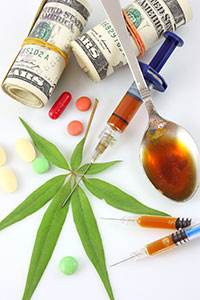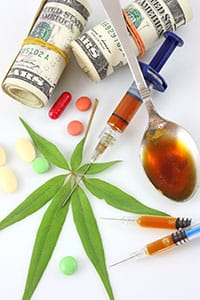Back in 1998, the satirical newspaper The Onion featured the following front-page headline: “Drugs Win Drug War” This introduction and the story that followed were obviously intended as a spoof, but humor is frequently used as a subtle way to reveal the truth and that was undoubtedly the intent in this case. 
The Global Commission on Drug Policy and the New Era
In the late ‘00s, a panel of political heavy-hitters was assigned the task of studying and assessing worldwide drug policy in order to make recommendations about how the overall strategy could be improved. In 2011 the Global Commission on Drug Policy issued a report that detailed their findings and conclusions, and given the solid mainstream credentials of the 19 commission members (former Secretary of State George Schultz and former chairman of the Federal Reserve Paul Volcker represented the United States) the report’s categorical rejection of the traditional approach to the problem of drug use and abuse caught many people by surprise. “The global war on drugs has failed, with devastating consequences for individuals and societies around the world” – this was the unanimous conclusion of the GCPD panel members as announced in the first line of their report. These powerful individuals, all of whom at one time or another had headed or served in governments that had participated in the war on drugs, recommended a major shift in drug policy away from prohibition and toward a multi-leveled strategy that would include decriminalization, legalization and regulation, alternatives to imprisonment for drug-related crimes, and a much greater emphasis on the public health consequences of drug abuse and addiction. As the GCPD came to recognize, from a public policy perspective the war on drugs has proven to be a bottomless money pit. It has soaked up massive amounts of resources that could conceivably have been used to provide expanded low-cost or subsidized treatment for those who need it, fund drug courts that send drug law violators to rehab instead of prison, sponsor educational campaigns and public-service announcements that would get the truth out about what addiction does to lives, and set up programs to help recovering addicts find jobs and places to live while they reintegrate into society. The United States presently has the largest prison population of any country in the world, up to 2.3 million and rising, and this statistic would not have been attainable without the passage of rigid laws prescribing mandatory prison sentences for those convicted of violating drug laws. In 1980, there were only 40,000 people serving time in U.S. prisons for drug crimes, but by 2013 that number had expanded to an astounding 500,000, with no accompanying reduction in the public’s overall consumption of illegal substances. Dozens of peer-reviewed studies have shown the superior cost-effectiveness of anti-drug initiatives that focus on rehabilitation rather than incarceration. When drug addiction is treated as a disease and a legitimate health problem rather than a moral failing, it then becomes possible to treat addicts not as criminals but as human beings in desperate need of medical attention, and approaches to chemical dependency that actually work can be used as an alternative to harsh policies that make things worse for the victims of addiction without reducing the level of drug consumption and abuse by the public as a whole.
Will Reality Finally Triumph Over Rhetoric? Stay Tuned…
Because of the reputations and connections of the members of the Global Commission on Drug Policy, its recommendations are being taken seriously at the highest political levels here in the United States and around the world. The recent passage of ballot initiatives legalizing the sale and recreational use of marijuana in Colorado and Washington clearly demonstrate that the public has grown disaffected with the war on drugs and is ready to try something new, which could encourage policy makers across the country to begin thinking outside the box. None of this guarantees that comprehensive change is just around the corner. But at least the ongoing dialogue about how to best combat drug abuse will be more open-minded and realistic than it has been in the past, when overheated rhetoric about the evils of all drugs has too often dominated the conversation. Drug use does not automatically lead to addiction—experts estimate that only about 10 percent of the world’s illegal drug users could be classified as addicts or abusers—and switching to an approach that puts the emphasis on treating addiction specifically instead of attempting to squelch all drug consumption would undoubtedly have a positive impact. Public budgets are being squeezed tightly everywhere, so the search for a more cost-effective method for dealing with addiction and drug abuse has never been more urgent. And from the perspective of drug addicts themselves, the stakes are supremely high, as the difference between effective strategies to counteract chemical dependency and failed tactics that stigmatize without providing medically-appropriate intervention may literally be a matter of life and death.

